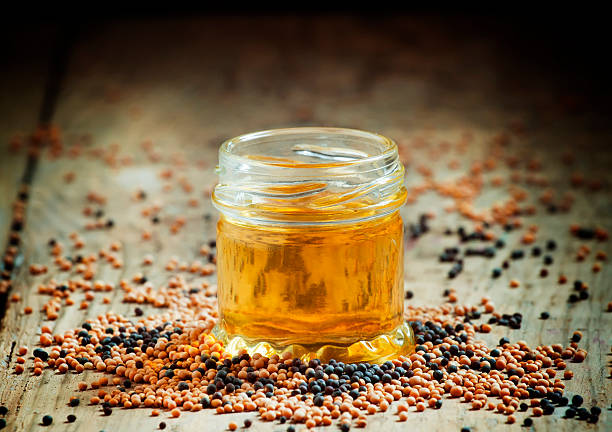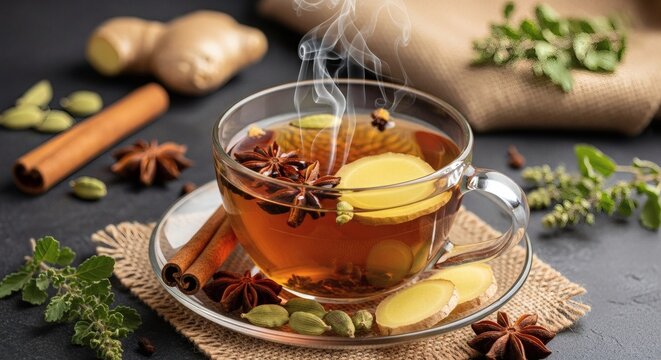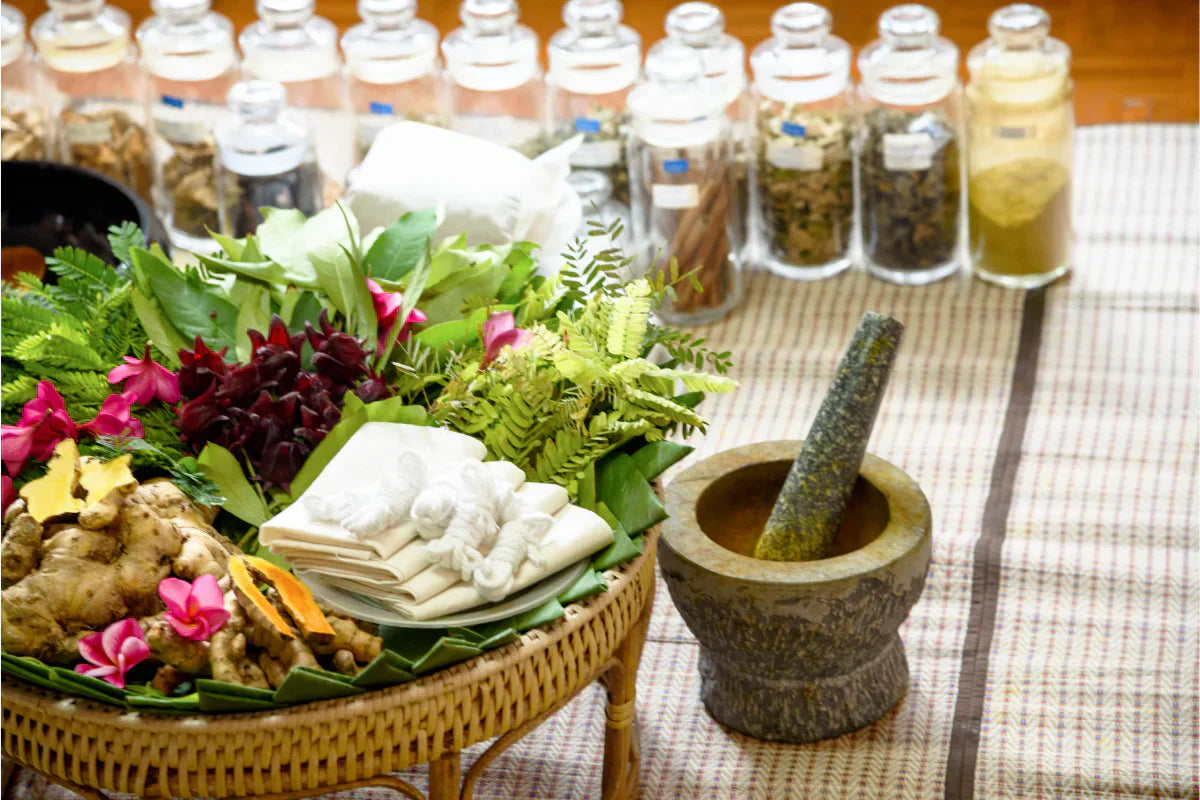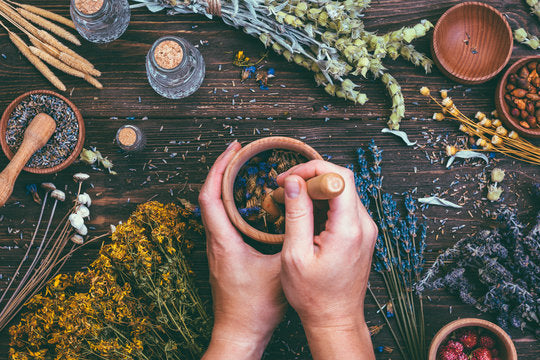Simple Self-Care Rituals to Stay Energized in Winters

Introduction – Embrace the Stillness of Winter with Warmth & Care
Winter may appear harsh with cold winds, dull sunlight, and longer nights, but Ayurveda sees it as a season of strength and nourishment. Our Agni (digestive fire) is strongest during this time, making it the ideal season to rebuild vitality and immunity.
As Acharya Charaka said, “When one follows Pathya Ahara and Pathya Vihara daily, one attains Swasthya Avastha (a state of health) and can prevent future diseases.”
This aligns with Ayurveda’s science of Ritucharya (seasonal living), adapting food and lifestyle to the rhythm of nature.
Ayurvedic Perspective on Winter
The year is divided into two parts called Ayanas based on the sun’s movement:
-
Uttarayana(Northern solstice): includes Winter (Shishira), Spring (Vasanta), and Summer (Grishma)
-
Dakshinayana(Southern solstice): includes Monsoon (Varsha), Autumn (Sharata), and Late Autumn (Hemanta)
Each season has different elements and energies. When these energies get imbalanced, diseases and illnesses can occur.
According to Ayurveda, winter belongs to the Visarga Kala, when the environment is dominated by Sheeta (cold) and Snigdha (moist) qualities. The cold climate leads to Agni Avarodha, the natural outward flow of body heat is obstructed by the surrounding chill.
Ayurvedic texts compare this to a potter’s kiln :
“Just as a potter covers his clay pots with soil after kindling the fire inside, allowing the heat to accumulate and strengthen, similarly, the Sheeta Vata covers our body from outside, intensifying the inner Agni (digestive fire).”
Thus, Agni becomes stronger in Hemanta Ritu, capable of digesting heavy, nourishing foods. But if proper, wholesome meals (Guru Aharas) are not consumed, the strong digestive fire begins to “burn” body tissues (Rasa Dhatu), leading to Vata aggravation.
To prevent this, one must eat adequately and regularly, following disciplined Ahara Vihara, aligned with the season.
Strengthening Immunity (Ojas) During Winter
Winter is the best season to build Ojas, the essence of vitality and immunity. Strong Agni digests heavy foods well, transforming nourishment into deeper tissue strength. This is also the most effective time to practice Rasayana therapy.
Key Ayurvedic Herbs for Winter Immunity
Ashwagandha (Withania somnifera)
Ashwagandha is a powerful adaptation known for restoring strength, stamina, and emotional balance. It helps the body adapt to winter stress while nourishing muscles and the nervous system. By balancing Vata and Kapha, it promotes restful sleep, resilience, and sustained energy, making it ideal for maintaining vitality through the colder months.
Amalaki (Indian Gooseberry)
Amalaki is one of Ayurveda’s most revered Rasayanas, abundant in natural Vitamin C and antioxidants. It rejuvenates body tissues, supports digestion, and enhances immunity. Regular consumption strengthens hair, skin, and vision while promoting Ojas, the essence of vitality. Its cooling yet nourishing nature balances Pitta and helps prevent seasonal fatigue and infections.
Guduchi (Giloy)
Guduchi, also called “Amrita” or “nectar of immortality,” is a potent detoxifying herb. It supports liver health, purifies the blood, and strengthens immunity. In winter, Guduchi keeps the system clear of toxins, guards against coughs and colds, and boosts natural resilience while maintaining balanced Tridosha and a healthy inflammatory response.
Pippali (Long Pepper)
Pippali ignites Agni (digestive fire), improves metabolism, and clears the respiratory channels. Its gentle warmth counteracts winter sluggishness and congestion, making it valuable in managing cold, cough, and low appetite. Combined with honey or ghee, it enhances nutrient absorption, uplifts vitality, and rejuvenates the lungs and digestive system.
Maharishi Amrit Kalash (MAK)
A classical Rasayana combining over 40 herbs and fruits, Maharishi Amrit Kalash nourishes the body at every level. It supports immunity, promotes cellular rejuvenation, and enhances mental clarity. Its balanced formulation harmonizes Vata, Pitta, and Kapha, reduces oxidative stress, and restores energy, creativity, and emotional stability during the winter season.
Chyawanprash
Chyawanprash is a timeless Ayurvedic tonic prepared from Amalaki and rejuvenating herbs in a base of ghee and honey. It strengthens the respiratory system, enhances digestion, and promotes youthful vigor. Regular use supports Ojas, boosts energy, and helps the body adapt to seasonal change, protecting against winter weakness and fatigue.
Ayurvedic Skin Care for Winter Glow
Cold weather causes dryness, so Abhyanga (oil massage) is essential.
-
Sesame Oil: Deeply nourishing and warming, sesame oil strengthens skin, prevents dryness, improves circulation, and balances Vata and Kapha in winter.
-
Kumkumadi Tailam: A luxurious facial oil that enhances glow, evens skin tone, and repairs dryness, leaving the complexion radiant and supple.
Winter Diet: Ayurveda Tips to Stay Warm & Energised
Winter cool strengthens the digestive fire (agni), so eat well of wholesome, nourishing foods.
Navanna or freshly harvested grains are good to add to your meals; are easy to digest; and help to build strength.
This is the season to tuck into root veggies – they are nourishing, grounded, and bring you natural energy, vital for the cold months. Add lots of onion, garlic, and radish to your meals to stimulate digestion and build immunity.
Enjoy the warm nourishment of dairy products, ghee, nuts, and seeds – push up stamina.
Get your fill of winter fruits – get refreshed with natural antioxidants and help tissue rejuvenation
Ignite agni further and boost metabolism while preventing seasonal sluggishness with a healthy mix of spices in your cooking.|
Simmer winter soups with fresh herbs and sip cups of Tulsi tea – protect yourself from colds and feel soothed and protected.
Remember to avoid cold, dry, or raw foods – this may aggravate Vata, causing an imbalance.
Winter Lifestyle: Daily Rituals (Dinacharya) for Vitality
-
Abhyanga: Daily warm sesame oil massage to nourish and strengthen the body.
-
Snana: Bath with warm water or herbal decoction for relaxation and circulation.
-
Sun Exposure: Spend time outdoors to absorb warmth and natural vitamin D.
-
Exercise (Vyayama): Practice yoga, brisk walking, or light strength training to stay energized.
-
Warm Clothing: Dress in layers to preserve body heat and prevent chill.
-
Head Oil Massage: Apply sesame or Brahmi oil to prevent dryness and enhance sleep.
-
Agaru Dhupana (Aromatic fumigation): Use herbal incense to purify air and uplift mood.
To Avoid
-
Daytime sleep increases Kapha and causes sluggishness.
-
Late nights disturb the natural circadian rhythm.
Exposure to cold winds aggravates Vata and reduces immunity.
Mental & Emotional Wellness in the Cold Months
Winter’s stillness can sometimes dull emotions or stir anxiety due to Kapha–Vata imbalance.
Ayurvedic Practices for Mental Balance
-
Maintain a steady routine and stay socially connected.
-
Practice meditation and pranayama (Nadi Shodhana, Bhramari).
-
Sip Tulsi or Chamomile tea for calmness.
-
Use warming aromas like cinnamon or sandalwood.
-
Herbs like Brahmi and Shankhpushpi support clarity and tranquility.
-
Journaling or creative expression keeps the mind light and joyful.
Research supports that light exposure, movement, and warm foods regulate serotonin and enhance mood.
Conclusion – Winter as a Time for Restoration
Ayurveda teaches that seasonal alignment is disease prevention.
When diet, rest, and lifestyle harmonize with winter’s rhythm, we strengthen immunity, build Ojas, and preserve long-term health.
Winter is not a time of dormancy; it’s a season of deep nourishment. Embrace it through warmth, stillness, and mindful self-care to emerge renewed in spring.
Stay strong and healthy this winter—shop our Immunity Collection.
FAQ
1. Which Ayurvedic herbs improve immunity during winter?
Ashwagandha, Amalaki, Guduchi, Pippali, and Turmeric. Classical Rasayanas like Chyawanprash or Maharishi Amrit Kalash are ideal.
2. What is the best oil for winter skin care?
Sesame oil for body and joints; Kumkumadi Tailam for face; Ksheerbala Tailam for head massage.
3. How can I maintain energy naturally in cold weather?
Eat warm, cooked meals, stay active, practice oil massage, and enjoy sunlight.
4. What should I eat during winter according to Ayurveda?
Warm, oily, grounding foods, soups, ghee, root vegetables, whole grains, and warming spices.
5. How can I balance Vata in winter?
Follow a consistent routine, stay warm, eat nourishing meals, and practice calming rituals like Abhyanga and meditation.
Popular Posts

Rheumatoid Arthritis in Ayurveda: Can Detox and Digestion Support Joint Health?
23 Jan, 2026Rheumatoid arthritis (RA) is a widely known joint condition, but did you know that Ayurveda trace...
Read more
Natural Ayurvedic Detox: Gentle Home Remedies
23 Jan, 2026What does natural detox really mean in Ayurveda? Essentially, this practice refers to the elimina...
Read more
Winter Weight Gain and Brain Fog: Ayurveda Explains Why
22 Jan, 2026What’s the trigger for winter weight gain? Why do we often experience brain fog, feel dull and he...
Read more




 Popular Read
Popular Read

















































